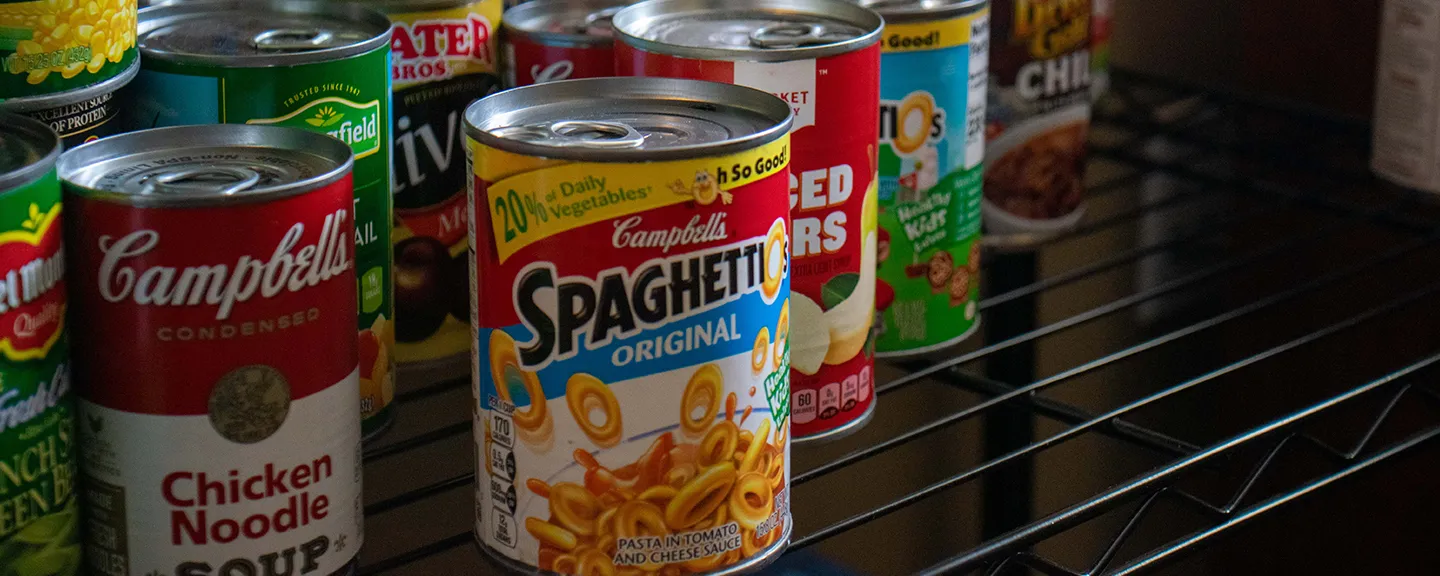- Home
- >
- APU Articles
- >
- News Article
Fighting Food Insecurity at College
April 23, 2020 | Written By Stephanie Thurrott

Across the United States, food insecurity at college continues to be a widespread problem. According to a Hope Center survey of 86,000 students spanning 123 colleges, 45 percent of respondents noted that they had been food insecure in the past 30 days. Other studies of food insecurity among college students have reported levels ranging from 9 percent to 75 percent.
The significant challenge to college students’ wellbeing has caught the attention of lawmakers and school administrators alike. At Azusa Pacific University, efforts to address this issue begin with identifying the current needs at all of APU’s Southern California campuses—and then working to meet those needs.
“We know that college students experience food insecurity nationally,” said Caitlyn Ratliff, MSW, regional campus engagement coordinator at APU. “APU offers food pantries at every campus location because food is our most basic need as people.”
Helping APU Students Access the Food They Need
APU is taking steps to support students who may be facing a lack of access to enough food. The school has food pantries on its main campus and all regional campuses to help make sure undergraduate, graduate, and professional students can access food whenever and wherever they need it.
“Hunger is linked to underperformance in academics and has a lot of other negative social and mental health effects,” Ratliff said. “We strive to develop the whole student, and ensuring that students have access to food is a vital part of that mission.”
Students, staff, and faculty can access APU’s campus food pantries anytime if they’re struggling to afford to eat. Each pantry is located in a centralized space on the campus and there’s no key required for access.
“Food pantries are an essential factor in student success at APU,” Ratliff noted. “We are blessed to be part of a campus community that cares for the whole-person needs of our students.”
Donations Are Welcome at All Campus Food Pantries
If you’re able to donate food to the pantries, your contributions can make a difference. Anyone can donate to any of the APU campus locations.
“Food insecurity is a very real challenge for APU students, and we can all help change that,” Ratliff said. “We encourage anyone who wants to donate items to do so.”
You can drop off your donations at:
- The Office of Women’s Development
- The front desk of any regional campus
Or, you can email to schedule a pickup. Most food pantries are happy to accept donations of shelf-stable items that aren’t dented, damaged, or expired.
Where to Find Food Pantries on Campus
APU’s food pantries are maintained by the Office of Women’s Development on main campus and by SoulQuest at the five regional campuses. Here’s where to find them:
- Azusa’s Main Campus: On East Campus in the Office of Women’s Development
- High Desert Regional Campus: Through the door of Room 106 in the student lounge
- Inland Empire Regional Campus: Inside the student lounge on the second floor
- Orange County Regional Campus: Inside the Prayer Room on the second floor
- Murrieta Regional Campus: On the south side of the Student Lounge, near the restroom facilities
- San Diego Regional Campus: Inside the Prayer Chapel on the third floor
If you’re not sure where to find the food pantry on your campus, you can ask staff or faculty or email [email protected]. APU is committed to fighting food insecurity, both on its campuses and in the surrounding communities.
Do you frequently struggle with food insecurity at college and need to connect with additional support services? Don’t hesitate to contact Student Affairs at (626) 815-2016.